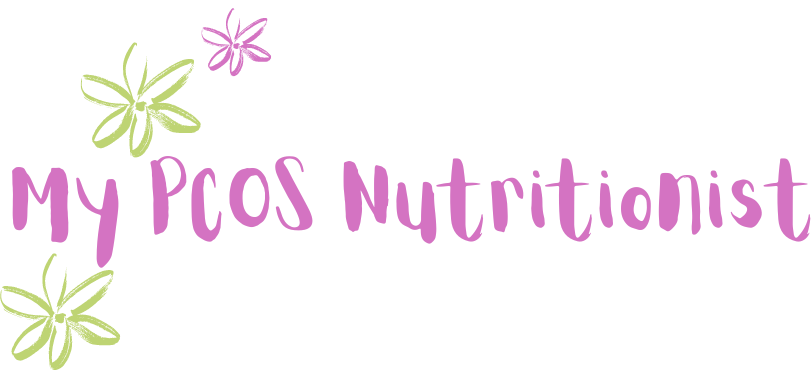Some commonly asked questions about PCOS
PCOS, or Polycystic Ovary Syndrome, is a common hormonal disorder affecting people with ovaries. It is characterized by irregular menstrual cycles, elevated levels of androgens (male hormones), and small cysts on the ovaries. The exact cause is unknown, but factors like insulin resistance, genetics, and inflammation may contribute.
- Irregular menstrual cycles.
- Elevated levels of androgens (male hormones), leading to acne and excess facial/body hair.
- Small cysts on the ovaries.
- Weight gain or difficulty losing weight.
- Insulin resistance.
- Thinning hair on the scalp.
- Mood swings or depression.
- Fertility issues.
Individual experiences may vary, and not everyone with PCOS will have all these symptoms.
Certainly, there is a well-established correlation between Polycystic Ovary Syndrome (PCOS) and insulin resistance. In PCOS, the cells in the body exhibit reduced responsiveness to insulin, a hormone vital for blood sugar regulation. This condition, referred to as insulin resistance, results in elevated insulin levels. Elevated insulin, in turn, contributes to heightened production of androgens (male hormones) by the ovaries, a characteristic manifestation of PCOS.
Insulin resistance not only amplifies the hormonal imbalances linked to PCOS but also plays a role in other metabolic challenges like weight gain and difficulties in maintaining stable blood sugar levels. Effectively managing insulin resistance through lifestyle adjustments, including a well-balanced diet, carbohydrate counting, regular physical activity, and, when necessary, medication, is essential in addressing both the symptoms of PCOS and the associated risk of developing type 2 diabetes. Therefore, individuals with PCOS are often advised to adopt a holistic approach to their well-being, addressing both hormonal balance and insulin sensitivity.
PCOS (Polycystic Ovary Syndrome) can impact fertility due to irregular ovulation or anovulation (lack of ovulation). This can lead to difficulty in conceiving. Treatment options for PCOS-related fertility issues include:
Lifestyle Changes: Weight management, regular exercise, and a healthy diet can improve fertility.
Ovulation Induction Medications: Clomiphene citrate or letrozole may be prescribed to induce ovulation.
Metformin: This medication can help manage insulin resistance and improve fertility.
In Vitro Fertilization (IVF): Assisted reproductive technologies, like IVF, may be considered if other treatments are unsuccessful.
Laparoscopic Ovarian Drilling: A surgical procedure that can stimulate ovulation.
Lifestyle Interventions: Improving lifestyle factors can enhance fertility outcomes.
Individualized treatment plans are essential, and consultation with a fertility specialist or reproductive endocrinologist is recommended for personalized guidance based on specific circumstances and goals.
Exercise plays a crucial role in managing PCOS (Polycystic Ovary Syndrome) by offering several benefits:
Improves Insulin Sensitivity: Regular exercise enhances the body’s response to insulin, helping manage insulin resistance often associated with PCOS.
Aids Weight Management: Physical activity contributes to weight loss or maintenance, positively impacting PCOS symptoms.
Regulates Hormones: Exercise can help balance hormones, including insulin and reproductive hormones.
Boosts Mood: Regular physical activity releases endorphins, promoting a positive mood and reducing stress.
Enhances Fertility: For those trying to conceive, exercise can improve reproductive function.
Supports Overall Well-Being: Exercise contributes to cardiovascular health, bone density, and overall fitness.
A combination of aerobic exercises, strength training, and flexibility exercises is recommended. However, individual preferences and health conditions should be considered, and consulting with a healthcare professional or fitness expert is important.
PCOS (Polycystic Ovary Syndrome) is typically a lifelong condition, but its symptoms can be managed effectively. While there is no cure, lifestyle changes, medications, and other interventions can help control symptoms and improve overall well-being. Management strategies may vary based on individual needs and goals. Consultation with a healthcare professional is crucial for developing a personalized treatment plan tailored to specific circumstances.
The DUTCH test, which stands for Dried Urine Test for Comprehensive Hormones, is a diagnostic tool that assesses hormone levels through dried urine samples. It provides a comprehensive analysis of reproductive and adrenal hormones, including metabolites, offering insights into hormonal imbalances and potential health issues.
Whether you need the DUTCH test depends on your specific health concerns, symptoms, and goals. It is commonly used for individuals experiencing hormonal imbalances, menstrual irregularities, fertility issues, or those seeking a detailed assessment of their hormonal profile.
I use Dutch Complete. It measures, estrogen, progesterone, cortisol, hormone metabolites, nutritional organic acid, neurotransmitter metabolites and melatonin.
Disclaimer: The information provided in response to the above questions is for general informational purposes only and should not be considered as professional medical, nutritional, or therapeutic advice. It is not a substitute for consultation with healthcare professionals, dietitians, or other qualified experts. Individual health conditions and needs vary, and personalized guidance is essential. Always seek the advice of your healthcare provider or a relevant professional for specific health concerns, diagnosis, treatment, or any other health-related information. You are encouraged to consult with appropriate professionals before making decisions based on the information provided.
